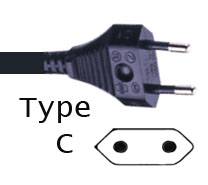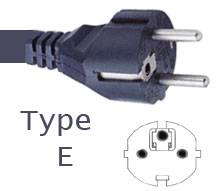Morocco, located in North Africa, is a captivating destination known for its vibrant culture, diverse landscapes, and rich history. From the bustling souks of Marrakech to the serene blue streets of Chefchaouen and the vast Sahara Desert, Morocco offers travelers an immersive experience filled with ancient traditions, flavorful cuisine, and stunning architecture.
Ultimate Morocco Travel Guide
Destinations
Best time to go
The best time to visit Morocco depends on your preferences and planned activities. Spring (March to May) and fall (September to November) are generally considered the best times to visit, with mild temperatures and less crowded tourist sites. However, if you’re interested in experiencing Moroccan festivals such as Eid al-Fitr or the Fes Festival of World Sacred Music, plan your visit accordingly.
Average Temperature By Month
January: 18°C (64°F)
February: 19°C (66°F)
March: 21°C (70°F)
April: 23°C (73°F)
May: 26°C (79°F)
June: 30°C (86°F)
July: 33°C (91°F)
August: 33°C (91°F)
September: 30°C (86°F)
October: 26°C (79°F)
November: 22°C (72°F)
December: 19°C (66°F)
What To Expect
Time Zone:
Morocco operates on Western European Time (WET) during standard time and Western European Summer Time (WEST) during daylight saving time. WET is Coordinated Universal Time (UTC+0), while WEST is UTC+1.
Currency:
The official currency of Morocco is the Moroccan Dirham (MAD). Currency exchange services are available at banks, exchange bureaus, and hotels. Credit cards are accepted in major cities and tourist areas, but it's advisable to carry cash for smaller purchases and transactions in more rural areas.
Language:
The official languages of Morocco are Arabic and Berber. French is also widely spoken, especially in urban areas and among the educated population. English is becoming more prevalent, particularly in tourist areas, but it's helpful to learn some basic Arabic or French phrases for communication with locals.
Airport:
The main international airport serving Morocco is Mohammed V International Airport (CMN), located near Casablanca. It's the busiest airport in the country and offers connections to various domestic and international destinations.
How To Get Around
Train: Morocco has a well-developed railway network operated by ONCF (Office National des Chemins de Fer). Trains connect major cities like Casablanca, Marrakech, Fez, and Tangier, offering a comfortable and efficient mode of transportation for long-distance travel.
Bus: Buses are a popular and affordable way to travel between cities and towns in Morocco. Several companies operate intercity bus services, with varying levels of comfort and amenities. Supratours and CTM are two reputable bus companies catering to tourists.
Taxi: Taxis are readily available in urban areas and can be hailed from the street or hired from taxi stands. Petite taxis operate within cities and charge based on the meter, while grand taxis are shared taxis used for longer journeys between cities and towns.
Car Rental: Renting a car is a convenient option for exploring Morocco, especially if you want to visit remote areas or venture off the beaten path. Several international and local car rental companies operate in major cities and airports.
Average Temperature By Month:
January: 18°C (64°F)
February: 19°C (66°F)
March: 21°C (70°F)
April: 23°C (73°F)
May: 26°C (79°F)
June: 30°C (86°F)
July: 33°C (91°F)
August: 33°C (91°F)
September: 30°C (86°F)
October: 26°C (79°F)
November: 22°C (72°F)
December: 19°C (66°F)
Plugs:
The standard voltage in Morocco is 220 volts AC, 50Hz. The most commonly used plug types are Type C (European) and Type E (French). It's advisable to bring a universal adapter if your devices have different plug types.
VPN:
Access to certain websites and online services may be restricted in Morocco. Consider using a virtual private network (VPN) to securely access the internet and bypass any censorship restrictions.
Safety:
Morocco is generally a safe destination for tourists, but it's essential to remain vigilant, especially in crowded areas and tourist sites. Petty crime such as pickpocketing can occur, so keep your belongings secure and be cautious when exploring unfamiliar areas. Additionally, be respectful of local customs and traditions, particularly in conservative regions. Overall, with proper planning and awareness, your trip to Morocco can be both enriching and safe.
Credit Cards and Banks
Credit Cards:
Credit card acceptance in Morocco is widespread, especially in urban areas, major tourist destinations, hotels, restaurants, and larger shops. Visa and MasterCard are the most commonly accepted, followed by American Express and Diners Club. However, some smaller establishments may prefer cash, so it’s advisable to carry some local currency as well.
ATMs:
ATMs are widely available in cities and tourist areas throughout Morocco, allowing you to withdraw Moroccan Dirhams (MAD). Popular tourist destinations like Marrakech, Casablanca, and Fes have a high concentration of ATMs, but they can also be found in smaller towns. It’s recommended to withdraw enough cash when you have access to ATMs, especially if you plan to travel to more remote locations.
Currency Exchange:
The currency of Morocco is the Moroccan Dirham (MAD), which is divided into 100 centimes. You can exchange major foreign currencies at banks, currency exchange bureaus, and some hotels. US dollars and euros are typically the most widely accepted foreign currencies for exchange.
Banks:
Major banks in Morocco include:
- Bank Al-Maghrib: The central bank of Morocco, responsible for monetary policy and regulating the country’s financial institutions.
- Attijariwafa Bank: One of the largest banks in Morocco, Attijariwafa Bank offers a wide range of banking services including savings accounts, loans, and foreign exchange.
- Banque Populaire du Maroc: A prominent bank in Morocco, Banque Populaire provides various banking products and services for individuals and businesses.
- BMCE Bank: Operating internationally, BMCE Bank offers retail and corporate banking services across Morocco.
Traveler’s Checks:
Traveler’s checks are becoming less common, and their usage is limited in Morocco. It’s recommended to carry cash or use credit/debit cards for transactions.
Tips for Banking in Morocco:
- Notify your bank before traveling to Morocco to avoid any issues with card usage abroad.
- Keep your PIN and card information secure, and be cautious when using ATMs, especially in secluded areas.
- Carry small denominations of Moroccan Dirhams for smaller purchases, as change may be limited.
- Familiarize yourself with the current exchange rate to ensure fair transactions when exchanging currency.
By understanding the banking system in Morocco, you can ensure a smooth and hassle-free financial experience during your travels in the country.
Locations
Morocco
TRAVEL FACTS
US State Dept Travel Advisory
The US Department of State currently recommends US citizens exercise increased caution in Morocco due to terrorism. Consult its website via the link below for updates to travel advisories and statements on safety, security, local laws, and special circumstances in this country.
https://travel.state.gov/content/travel/en/traveladvisories/traveladvisories.html
Passport/Visa Requirements
For the latest passport and visa requirements for this country, please consult the U.S. State Department’s “Learn About Your Destination” search tool, available through the link below.
US Embassy/Consulate
[212] 537 637 200; US Embassy Rabat, Km 5.7, Avenue Mohamed VI, Souissi, Rabat 10170, Morocco; ACSCasablanca@state.gov; https://ma.usembassy.gov/
LGBTQIA+ Travelers
Telephone Code
212
Local Emergency Phone
Ambulance: 15; Fire: 15; Police: 19
Vaccinations
See WHO recommendations
Climate
Mediterranean, becoming more extreme in the interior
Currency (Code)
Moroccan dirhams (MAD)
Electricity/Voltage/Plug Type(s)
220 V / 50 Hz / plug types(s): C, E


Major Languages
Arabic, Berber languages (Tamazight, Tachelhit, Tarifit), French
Major Religions
Muslim 99% (virtually all Sunni, <0.1% Shia), other 1% (includes Christian, Jewish, and Baha’i)
Time Difference
UTC 0 (5 hours ahead of Washington, DC, during Standard Time); daylight saving time: +1 hour, begins last Sunday in March, ends last Sunday in October
Potable Water
Opt for bottled water
International Driving Permit
Suggested
Road Driving Side
Right
Tourist Destinations
Marrakesh (includes Medina, Majorelle & Secret Gardens, Museum); Hassan II Mosque (Casablanca); Rabat (includes Royal Palace, Udayas Kasbah, Hassan Tower); Fes el Bali; Tangier; Chefchaouen; Volubilis; Atlas Mountains; Ouzoud Waterfalls; Ait Benhaddou
Major Sports
Soccer, kickboxing
Cultural Practices
Traditionally, food is taken only by the right hand, with three fingers. Bowls of water are prepared for washing hands before and after meals.
Tipping Guidelines
In restaurants, if a service charge has not been added, leave 20-30 dirhams or 10% of the bill. Tipping the bellhop 10-20 dirhams is reasonable. Round up taxi fares. Leave 5-10 dirhams per day for housekeeping.
Souvenirs
Silver and brass tea sets, Argan oil, ceramics/tagine clay cooking pots, leather goods including bobouche slippers, jewelry
Traditional Cuisine
Tagine — chicken stew with spices, vegetables, olives, and preserved lemons served with couscous
Please visit the following links to find further information about your desired destination.
World Health Organization (WHO) – To learn what vaccines and health precautions to take while visiting your destination.
US State Dept Travel Information – Overall information about foreign travel for US citizens.
To obtain an international driving permit (IDP). Only two organizations in the US issue IDPs:
American Automobile Association (AAA) and American Automobile Touring Alliance (AATA)
How to get help in an emergency?
Contact the nearest US embassy or consulate, or call one of these numbers:
from the US or Canada – 1-888-407-4747 or from Overseas – +1 202-501-4444
Central Intelligence Agency.
The World Factbook.
/the-world-factbook
(May 8, 2024)



